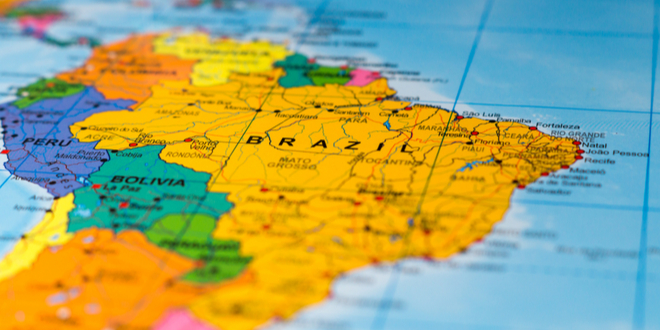Understanding the payment landscape and evolution in Brazil is the backbone of our business, AstroPay CEO Mikael Lijtenstein told SBC Noticias, as he dives into the company’s offering in Latin America and how PIX “can further real-time payments and foster financial inclusion”.
SBC: Why is Latin America such an attractive market for AstroPay to explore? And what key considerations should be made when looking at this region?
Latin America is home to some 300 million digital shoppers, a number that is projected to grow more than 20% by 2025. It is also home to one of the most diverse populations in the world and a group of countries that share many things in common: language, culture and history to name a few.
Both the size and the myriad of cultures, people and customs make this region an attractive market to be fully explored. However, each country in the region is unique and deserves to be defined by itself based on its characteristics, its people and its economic panorama, which are influencing its growth trajectories.
Companies looking to expand their operations in the Latin American market need to understand the complexities and challenges specific to the continent’s markets. The cultural context, regulations and customs differ from country to country. Companies that want to make their entry successfully and smoothly must employ a careful and well-planned business strategy taking into account the context of each market.
SBC: We have seen digital payments rapidly grow in Brazil, how crucial can the AstroPay offering be in accelerating this growth?
AstroPay has been operating in Brazil since 2009 and it was the first market where the company started its operations. Since our inception, we have been providing an online payment option available to all users that need to purchase online on international sites regardless of them being unbanked or having a debit or credit card.
Over the years, we’ve learnt that offering seamless payment experience to our users has been proven to increase the conversion rate at the checkout point. As digital payments become the popular choice of consumers, creating a journey where pain points are avoided, with single-click-experiences and automatic payment fulfilment, are imperative to provide users with a smooth user experience.
SBC: For those that might not know, can you tell us a little bit about Pix?
Pix is a payment method created by the Brazilian Central Bank (Banco Central do Brasil) in October 2020. It enables funds to be transferred between accounts in under ten seconds, making it a practical, instant and secure payment option that can be used from an online wallet, checking account, savings account or prepaid payment account. Anyone with an ID and a mobile phone can be part of the inclusão financeira (financial inclusion in Portuguese).
SBC: Are you able to detail more about the PIX offering and what it can do for the payment journey in Brazil?
Pix is an interesting example of how instant payments can further real-time payments and foster financial inclusion in a country where almost 34 million adults still do not have access to traditional financial services. The payment method has been adopted by over 62% of the country’s adult population which amounts to approximately 100 million users.
Some specialists mentioned that the impact of Pix on Brazilians has been more positive than everyone imagined. The solution has become an agent of democratisation for the unbanked population. Any person with an ID and a mobile phone can pay with it. The popularity of this instant payment option is such that even people who sell their products on the streets use it by calling people “Make me a Pix!”
SBC: What role can AstroPay’s offering and the overall digitalisation of payments play when it comes to increasing financial inclusion in Brazil and South America?
Latin America harbours approximately 300 million digital buyers, a figure forecast to grow over 20 percent by 2025. In the region, characterised by a high unbanked number of adults, cash transactions still predominate, although smartphone and internet penetration has increased and the use of digital wallets and contactless mobile payments have become popular among consumers.
Various countries in Latin America have adapted and innovated to develop alternative payment methods to accommodate those without access to financial services, such as in the case of Pix.
Based on our records, 82% of the payments in Brazil received in our platform in the last month have been done through Pix. This shows how the payment method is replacing bank transfers and another payment method, Boleto.
We believe that fintech companies have a leading role in the transformation of the payments industry and ensuring financial inclusion, offering users alternative payment options and methods that are most convenient to them.
Our role is to understand what users need and provide the solution, and this is what we do at AstroPay. We have dedicated teams working in each country to understand what our users need and what they experience to provide them with the best product and payment journey possible. Our extensive experience in emerging markets made us aware of the needs these populations have, so financial inclusion has always been part of our DNA since our inception.
SBC: How much does it mean to AstroPay to be at the heart of the payment evolution in Brazil and could we see this type of evolution replicated in other regions?
Understanding the payment landscape and evolution in Brazil is the backbone of our business. Our success and ability to continue our growth and expand to new markets are driven by our knowledge and ability to be agile when there are changes in trends or new developments in the market we operate in. The payments industry requires a great deal of flexibility as the ecosystem constantly changes.
It’s very important to adapt and come up with solutions or changes at the precise moment in order to stay ahead of consumer demand and keep pace with the latest technology and local regulations. When Pix was launched in Brazil, our specialised team started working on our capability to integrate it into our payment solutions, making sure it was instantly available to be used. We adopt the same strategy in other markets in Latin America, Asia, Africa, and Europe, partnering with various local payment methods so our solutions are available and accessible when users need it.









